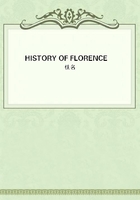
第87章
Tommaso and Niccolo Soderini openly oppose us on account of their hatred of their uncle Francesco. So that if we consider well what we are, and what our enemies, I cannot see why we should be called NOBLEany more than they. If it is because they are followed by the plebeians, we are in a worse condition on that account, and they in a better; for were it to come either to arms or to votes, we should not be able to resist them. True it is, we still preserve our dignity, our precedence, the priority of our position, but this arises from the former reputation of the government, which has now continued fifty years; and whenever we come to the proof, or they discover our weakness we shall lose it. If you were to say, the justice of our cause ought to augment our influence and diminish theirs I answer, that this justice requires to be perceived and believed by others as well as by ourselves, but this is not the case; for the justice of our cause is wholly founded upon our suspicion that Cosmo designs to make himself prince of the city. And although we entertain this suspicion and suppose it to be correct, others have it not; but what is worse, they charge us with the very design of which we accuse him. Those actions of Cosmo which lead us to suspect him are, that he lends money indiscriminately, and not to private persons only, but to the public;and not to Florentines only, but to the /condottieri/, the soldiers of fortune. Besides, he assists any citizen who requires magisterial aid;and, by the universal interest he possesses in the city, raises first one friend and then another to higher grades of honor. Therefore, to adduce our reasons for expelling him, would be to say that he is kind, generous, liberal, and beloved by all. Now tell me, what law is there which forbids, disapproves, or condemns men for being pious, liberal, and benevolent? And though they are all modes adopted by those who aim at sovereignty, they are not believed to be such, nor have we sufficient power to make them to be so esteemed; for our conduct has robbed us of confidence, and the city, naturally partial and (having always lived in faction) corrupt, cannot lend its attention to such charges. But even if we were successful in an attempt to expel him (which might easily happen under a favorable Signory), how could we (being surrounded by his innumerable friends, who would constantly reproach us, and ardently desire to see him again in the city) prevent his return? It would be impossible for they being so numerous, and having the good will of all upon their side, we should never be secure from them. And as many of his first discovered friends as you might expel, so many enemies would you make, so that in a short time he would return, and the result would be simply this, that we had driven him out a good man and he had returned to us a bad one; for his nature would be corrupted by those who recalled him, and he, being under obligation, could not oppose them. Or should you design to put him to death, you could not attain your purpose with the magistrates, for his wealth, and the corruption of your minds, will always save him. But let us suppose him put to death, or that being banished, he did not return, I cannot see how the condition of our republic would be ameliorated; for if we relieve her from Cosmo, we at once make her subject to Rinaldo, and it is my most earnest desire that no citizen may ever, in power and authority, surpass the rest. But if one of these must prevail, I know of no reason that should make me prefer Rinaldo to Cosmo. I shall only say, may God preserve the city from any of her citizens usurping the sovereignty, but if our sins have deserved this, in mercy save us from Rinaldo. I pray thee, therefore, do not advise the adoption of a course on every account pernicious, nor imagine that, in union with a few, you would be able to oppose the will of the many; for the citizens, some from ignorance and others from malice, are ready to sell the republic at any time, and fortune has so much favored them, that they have found a purchaser. Take my advice then; endeavor to live moderately; and with regard to liberty, you will find as much cause for suspicion in our party as in that of our adversaries. And when troubles arise, being of neither side, you will be agreeable to both, and you will thus provide for your own comfort and do no injury to any."These words somewhat abated the eagerness of Barbadoro, so that tranquillity prevailed during the war with Lucca. But this being ended, and Niccolo da Uzzano dead, the city being at peace and under no restraint, unhealthy humors increased with fearful rapidity.
Rinaldo, considering himself now the leader of the party, constantly entreated and urged every citizen whom he thought likely to be Gonfalonier, to take up arms and deliver the country from him who, from the malevolence of a few and the ignorance of the multitude, was inevitably reducing it to slavery. These practices of Rinaldo, and those of the contrary side, kept the city full of apprehension, so that whenever a magistracy was created, the numbers of each party composing it were made publicly known, and upon drawing for the Signory the whole city was aroused. Every case brought before the magistrates, however trivial, was made a subject of contention among them. Secrets were divulged, good and evil alike became objects of favor and opposition, the benevolent and the wicked were alike assailed, and no magistrate fulfilled the duties of his office with integrity.